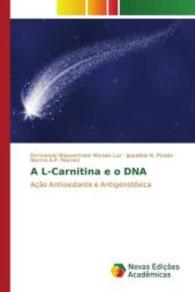- ホーム
- > 洋書
- > 英文書
- > History / World
Full Description
This work investigates attempts by Bulgarian Communist Party leaders, bureaucrats and subjects to model, disseminate, and appropriate a local version of the "homo-sovieticus," or new soviet man and woman, during the 1960s and 1970s, a period of "socialist humanism." Defining and living socialist humanism was a complex process questioning, among other things, the place of work and leisure, sex and pleasure, and the relationship between Bulgaria and the outside world. The socialist system, in these and other programs, invested tremendous resources to direct the movements of its population, at least in part, in order to transform it subjectively.
Framed by four programs each linked with the values that socialist humanism sought to instill: the brigadier movement (work); the workings of the brother-city relationship between Haskovo and Tashkent in the Uzbek Soviet Socialist Republic (international socialism); internal tourism (nation); and the exhibition of art in the Haskovo gallery (aesthetics) The Late Socialist Good Life examines the way in which socialism was lived in a time of transition.
Viewed from the center, state-manipulated brigades, excursions, art exhibitions and cultural exchanges demonstrate the ability of the state to oblige all to find their place within systemic requirements-but closer perspectives reveal the contingencies produced by interactions between these systems and their subjects. Tashkent, meant to be a model of Soviet progress and a glimpse into Haskovo's future, proved as often to be understood as a symbol of a degraded (if enticing) oriental past. Brigadiers were more interested in playing soccer or gossiping and fighting than in working. Tourists grumbled at inadequate facilities and drank and smoked rather than gaining an appreciation for the beauty of nature and the largesse of the system that allowed them to tour. Socialist Humanist, Socialist Realist art revealed images of the bourgeois and the private in place of earlier tropes of workers working.
Bulgarian socialist humanists' navigation of these programs resolved themselves in many outcomes in the search for the socialist good life: in the field of interactions people created solaces, expressed discontents, and above all, manufactured alterations in systems meant to instill uniformity.
Contents
Acknowledgments
Chapter 1. Introduction: Creating Socialist Humanism
Chapter 2. "Stroim za rodinata"
Chapter 3. Haskovo and Tashkent: Brothers in Socialism
Chapter 4. Touring, the Sacred and the Socialist Self
Chapter 5. Plotting the Self in the Socialist Humanist Art Gallery
Chapter 6. Conclusions: Socialist Humanism: Promises and Perils
Bibliography
Index






